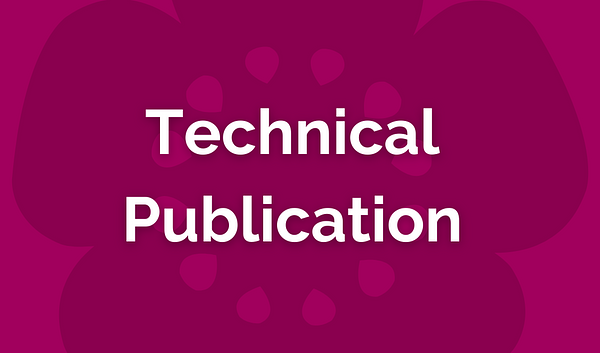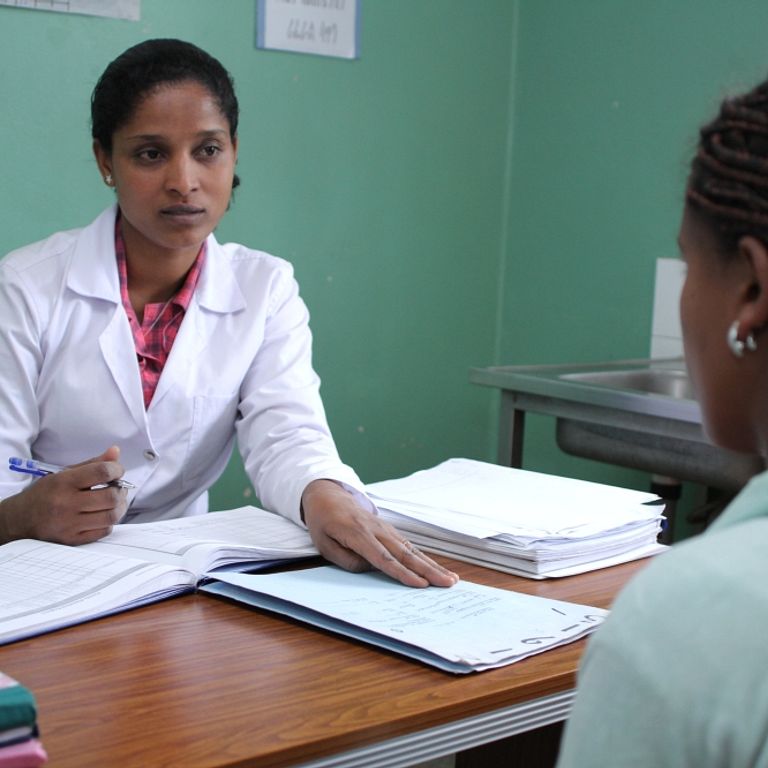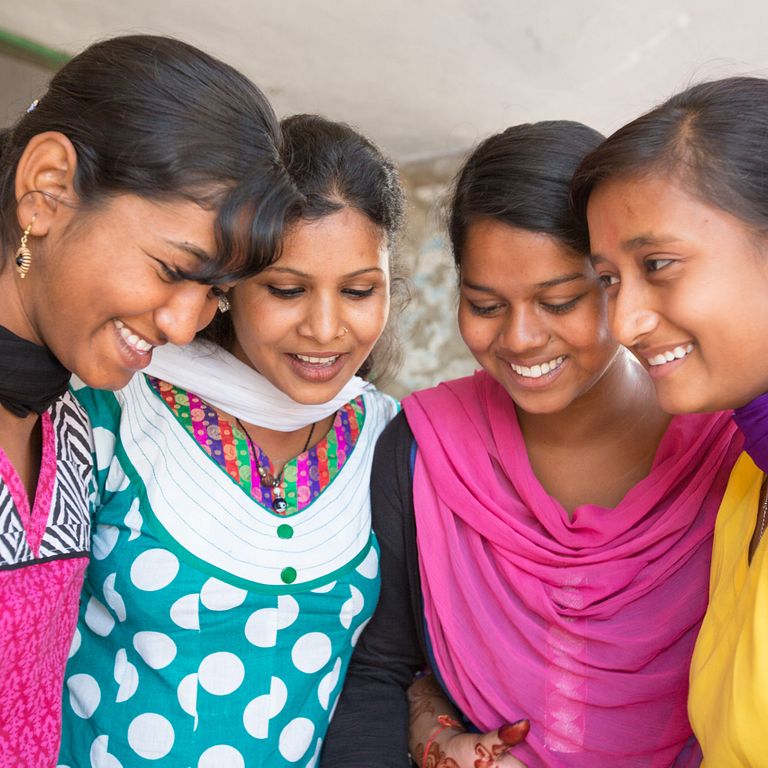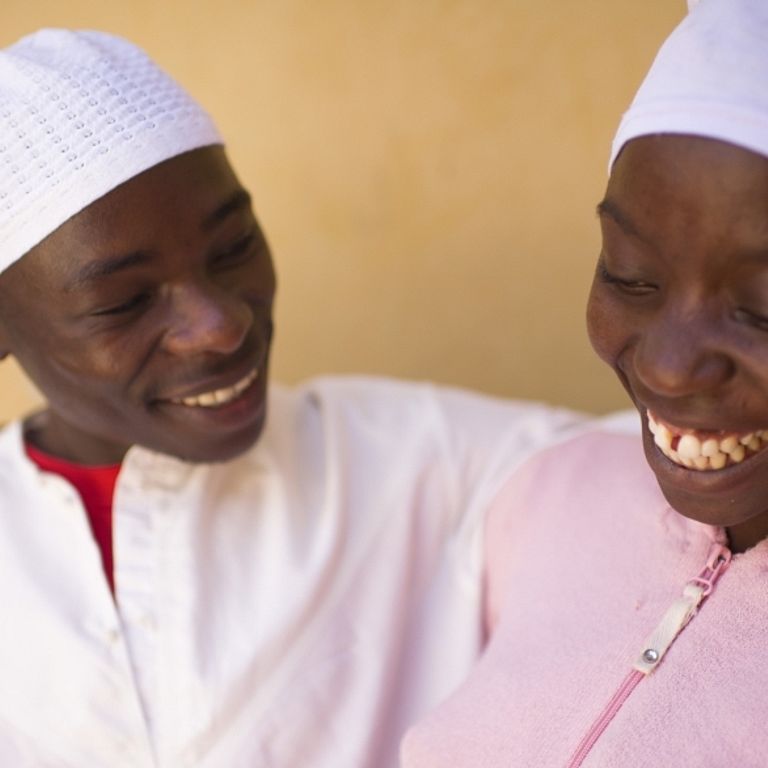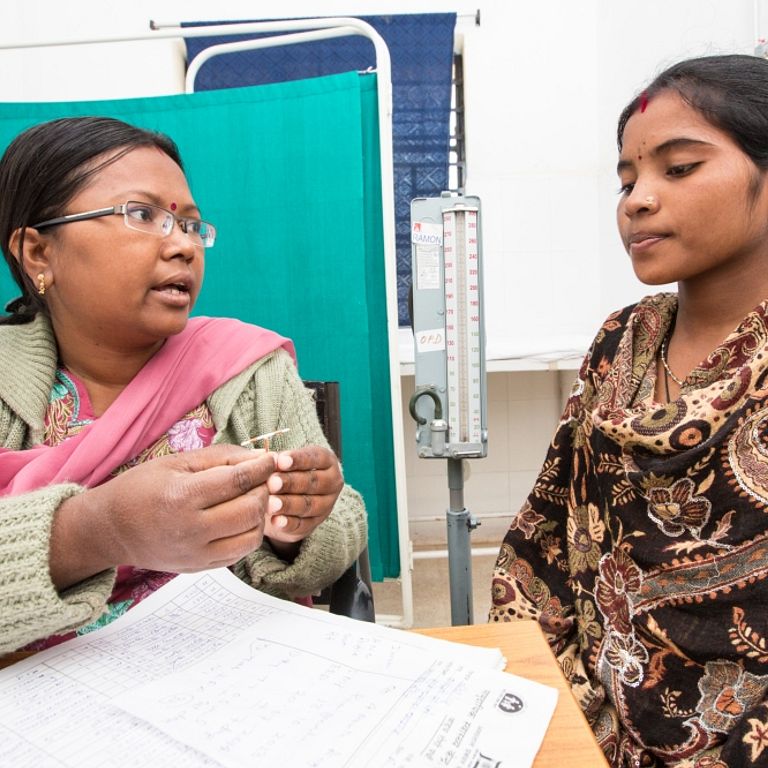A Rights-Based Approach for Enhancing SRHR in Ethiopia
This program, funded by the Swedish International Development Cooperation Agency, uses a rights-based approach to provide education and access to sexual and reproductive health services for young people in Ethiopia.
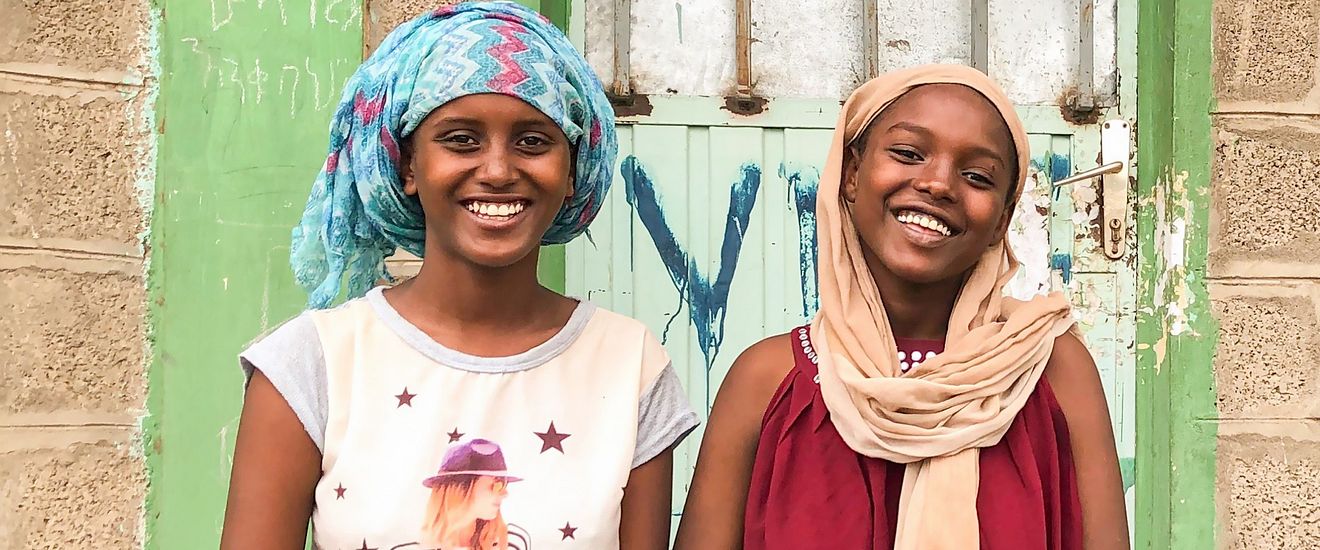
Addis Ababa is among the fastest-growing cities in the world, with a growth rate of 4.3%, according to the United Nations. As the population grows, there is an increased need to expand basic services and strengthen health systems. Currently, gender-based violence (GBV) services are incomplete due to resource constraints, weak referral systems, and a lack of knowledge among healthcare providers and clients.
EngenderHealth’s A Rights-Based Approach for Enhancing Sexual and Reproductive Health and Rights (SRHR) program is designed to ensure all people, particularly women and girls, can fulfill their SRHR. We are implementing this program in Addis Ababa, in close partnership with the Ethiopian Women Lawyers Association and government partners, including the Bureau of Education, the Bureau of Health, and the Bureau of Women and Children Affairs.

Through this program and with our partners, we facilitate and support activities to create awareness and policy dialogues to ensure local policymakers and implementers are able and willing to support young people and others whose rights have been violated—particularly in instances of GBV. Further, we are working to develop legal frameworks, trainings, and a systems approach that coordinates the response to GBV across departments (including health, justice, education, and others). EngenderHealth is training educators, healthcare providers, and decision makers to expand knowledge of and access to SRHR services for young people, improve the agency of individuals to exercise their SRHR, and strengthen the enabling environment. Throughout program activities we integrate our Gender, Youth, and Social-Inclusion (GYSI) tools to aid in reflection and discussion and to challenge and change harmful gender, age, and other related norms that negatively impact adolescent and youth SRHR.
The program trains and supports healthcare providers, teachers, and law enforcement personnel on SRHR, GBV, and GYSI. We created a hotline for survivors of GBV. With the support of EngenderHealth and our partners, survivors of GBV (ages 19 to 30) receive free legal aid services. In addition to this work, EngenderHealth quickly responded to the evolving reality of the COVID-19 pandemic. We collaborated with stakeholders to design and launch media campaigns with SRHR and GBV messaging, continued to provide SRHR education to young people while schools were closed, and reinforced COVID-19 prevention measures. The program purchased and distributed personal protective equipment to healthcare providers actively working on SRH services, dispensed menstrual pads in COVID-19 quarantine and isolation centers, and provided technical support to program stakeholders to ensure SRHR and prevention of GBV for young people remain a priority throughout the crisis.
Ethiopia has endured multiple emergencies during the program implementation period, including inter-communal violence and conflicts in the northern part of the country. These emergencies have significantly increased internal displacement and the need for resources to assist displaced communities. These conflicts and instability have also hampered the delivery of essential services, disrupted livelihoods, and exacerbated protection risks—including risks associated with GBV, disproportionately affecting women, girls, and adolescents. The inability to access essential services, including SRH services and GBV care, can lead to maternal and infant morbidities, mortalities, and psychological trauma.
In March 2022, the program began supporting the humanitarian response to the conflict in the Afar and Amhara regions. We focused on GBV prevention and response and strengthening access to SRH services integrated with Mental Health and Psychosocial Support (MHPSS). Together with our partners, we trained healthcare professionals to improve GBV and SRH services, established 13 one-stop centers for comprehensive, survivor-centered GBV care and services, and supported SRHR service restoration at 50 other health facilities in respective regions. The program has also trained community volunteers to improve GBV identification, provide mental health and psychosocial support, and assist with referrals to one-stop centers. In addition, the program team has engaged with groups focused on the global, national, and regional humanitarian response to promote accountability and respect for human rights. We are working with partners to incorporate a Gender, Youth, and Social Inclusion (GYSI) lens into applicable guidelines and policies.
Since 2019, EngenderHealth has provided SRHR education to 10,822 young people. In addition, 3,401 GBV survivors have received comprehensive services at 18 one-stop centers, and through our partnership with the Ethiopian Women Lawyers Association, 1,408 GBV survivors received free legal services. In addition, we helped train 1,065 SRH service providers. So far, 586,925 women and girls have received comprehensive contraception, and 46,550 have received comprehensive abortion care services.
Meaningful participation, engagement, and leadership of adolescents and youth, women, and other community members is critical to the success AYSRH programs. We worked to engage young people in the project through capacity strengthening, planning, and implementation activities. We established a youth advisory council (YAC) comprised of 15 members between ages 14 to 24 (six male, nine female) based in Addis Ababa. Guided by the Flower of Youth Participation, the YAC brings together young people who are diverse in age, gender, education levels, and socioeconomic status. EngenderHealth created a safe environment for members to build their knowledge, skills, and capabilities in SRHR. In addition to reflecting and recommending on the project approaches and interventions of the project, they also develop interventions to complement on the project’s ongoing initiatives. For example, they advocated for disability inclusion in the health sector plan to key government stakeholders and collaborated with Federation of Ethiopian Associations of Persons with Disabilities to cascade trainings for health care providers and manager, conduct awareness creation activities, and advocate to build a more inclusive health system. In the following video some members of the YAC reflect on their journey.

